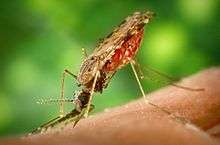Tropical medicine

Tropical medicine (not to confuse with International medicine) is the branch of medicine that deals with health problems that occur uniquely, are more widespread, or prove more difficult to control in tropical and subtropical regions.
Many infections and infestations that are classified as "tropical diseases" used to be endemic in countries located in the tropics. This includes widespread epidemics such as malaria, Ebola and hookworm infections as well as exceedingly rare diseases like lagochilascaris minor. Many of these diseases have been controlled or even eliminated from developed countries, as a result of improvements in housing, diet, sanitation, and personal hygiene.
Sir Patrick Manson is recognised as the "Father of Tropical Medicine." He founded the London School of Hygiene & Tropical Medicine in 1899.
Training
The training in Tropical Medicine is quite different between countries. Most physicians are trained at Institutes of Tropical Medicine. For example, the training of Dutch tropical doctors consists of two clinical years (Obstetrics & Gynecology, Paediatrics or General Surgery) and a three months course at the Royal Tropical Institute (KIT) in Amsterdam.
Recently, the government of Bangladesh established the Institute of Tropical and Infectious Diseases in the port city of Chittagong.
Bibliography
- Jonathan Kaplan. The dressing station, a surgeon's odyssey. Picador, London, 2001.
- Deborah J. Neill. Networks in Tropical Medicine: Internationalism, Colonialism, and the Rise of a Medical Specialty, 1890-1930 (Stanford University Press; 2012) 320 pages; shows how the emerging field was shaped by physicians' and scientists' collaborating during a major epidemic of sleeping sickness in sub-Saharan Africa.
- Anne Spoerry. Mama Daktari. The house of books, Vianen, 2000.
- John Farley. "Bilharzia: A History of Tropical Medicine." Cambridge University Press, 1991.
Organizations
- American Society of Tropical Medicine and Hygiene
- The Australasian College of Tropical Medicine
- Australian Institute of Tropical Health and Medicine
- Anton Breinl Centre for Public Health and Tropical Medicine
- Bernhard Nocht Institute for Tropical Medicine
- Bangkok School of Tropical Medicine
- Tulane University School of Public Health and Tropical Medicine
- Liverpool School of Tropical Medicine
- London School of Hygiene & Tropical Medicine
- Prince Leopold Institute of Tropical Medicine - Antwerp, Belgium
- Research Institute for Tropical Medicine - Philippines
- Royal Society of Tropical Medicine and Hygiene
- Walter Reed Tropical Medicine Course - Silver Spring, Maryland, USA
